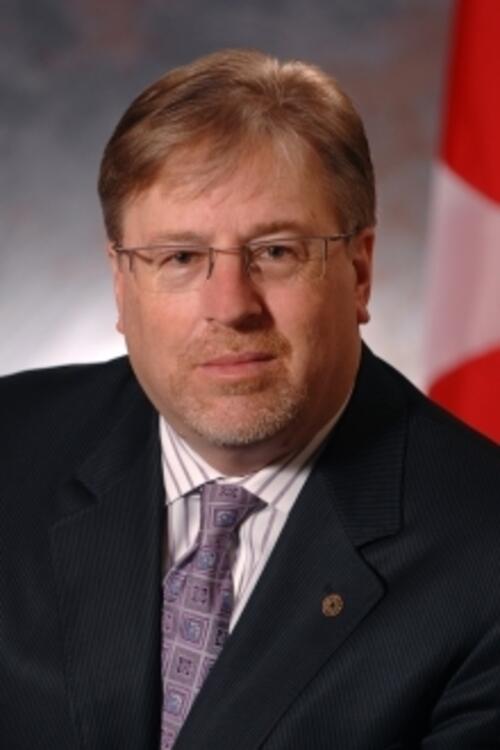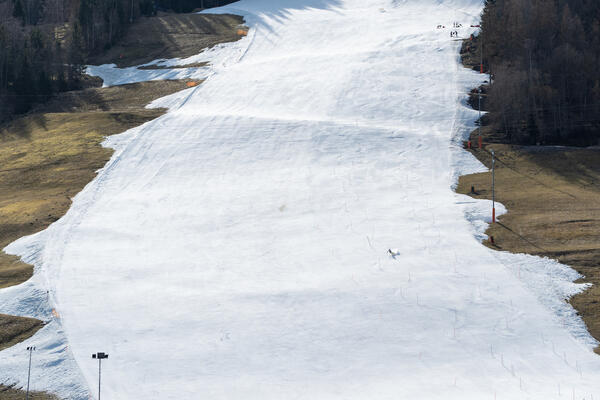
Waterloo expert to address NAFTA environment heads
University of Waterloo Strategic Advisor on Sustainability David McLaughlin is set to give the keynote address at meetings

University of Waterloo Strategic Advisor on Sustainability David McLaughlin is set to give the keynote address at meetings
By Media RelationsUniversity of Waterloo Strategic Advisor on Sustainability David McLaughlin is set to give the keynote address at meetings featuring the Canadian Minister of Environment Leona Aglukkaq, Mexico’s Secretary of Environment and Natural Resources Juan José Guerra Abud and US Environmental Protection Agency Administrator Gina McCarthy.
Taking place in Yellowknife on July 16 and 17, the meetings are the latest in an annual series organized by the Commission for Environmental Cooperation’s (CEC), Joint Public Advisory Committee (JPAC), to solicit public participation on environmental matters from the three partners in The North American Free Trade Agreement.
 As the former president and CEO of the National Round Table on the Environment and the Economy (NRTEE) McLaughlin’s keynote address on Wendesday, July 16th, will share insights on how more continental collaboration on energy, climate change, water, and sustainable development is needed and how this can be done through greater cooperation.
As the former president and CEO of the National Round Table on the Environment and the Economy (NRTEE) McLaughlin’s keynote address on Wendesday, July 16th, will share insights on how more continental collaboration on energy, climate change, water, and sustainable development is needed and how this can be done through greater cooperation.
“The environment is borderless,” said McLaughlin. “Climate change impacts in Canada are coming from greenhouse gases emitted elsewhere on the planet. Many of our lakes, rivers, and water basins are shared with the U.S. The imperative for greater environmental collaboration is obvious. The CEC has a useful role to play.”
The meetings will focus on transboundary natural resource management, with an emphasis on water, climate, and the importance of traditional ecological knowledge, reflecting the environmental and economic realities of the host city.
“The University of Waterloo is undertaking leading research in climate impacts and adaptation, energy efficiency, and water sustainability through dedicated centres and institutes on campus. It is fast becoming a Canadian and international leader in these areas,” said McLaughlin.
The CEC was established in 1994 following the creation of the North American Free Trade Agreement. It acts as a facilitator for collaboration and public participation to foster conservation, protection and enhancement of the North American environment against the backdrop of increasing economic, trade, and social links among Canada, Mexico, and the United States.
The Joint Public Advisory Committee (JPAC) is an organization within the CEC, established to provide a citizen voice to the CEC’s efforts. It is composed of 15 citizens (five from each country) and advises the Council as a microcosm of the public: independent individuals who contribute diverse but rich institutional experience and cultural perspectives.
The meetings will also be broadcast live online. Attendance is open to the public and free of charge.

(GettyImages/amriphoto)
Read more
Study reveals changes International Olympic and Paralympic Committees could implement to keep Games viable and safer for athletes

Read more
An ambitious research collaboration with Habitat for Humanity is reimagining home ownership across Waterloo Region and Canada

Read more
Here are the people and events behind some of this year’s most compelling Waterloo stories
The University of Waterloo acknowledges that much of our work takes place on the traditional territory of the Neutral, Anishinaabeg, and Haudenosaunee peoples. Our main campus is situated on the Haldimand Tract, the land granted to the Six Nations that includes six miles on each side of the Grand River. Our active work toward reconciliation takes place across our campuses through research, learning, teaching, and community building, and is co-ordinated within the Office of Indigenous Relations.